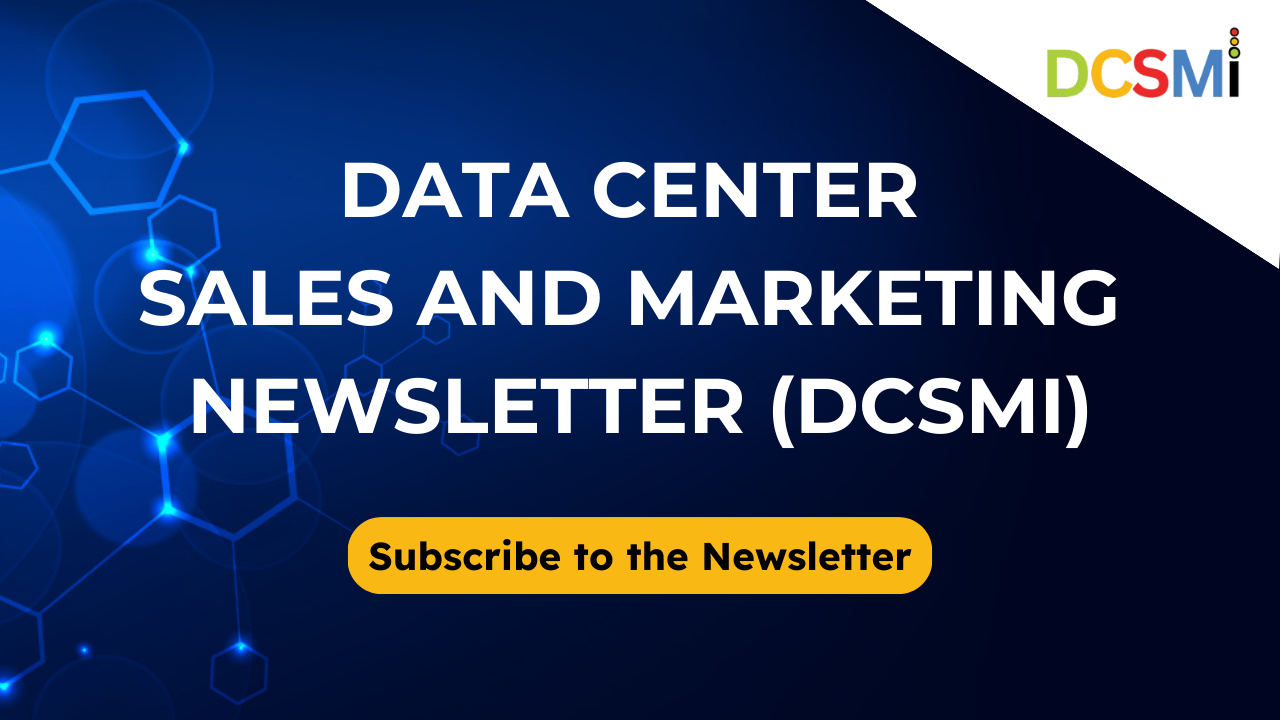Data Center
Sales & Marketing Institute (DCSMI)
ELEVATING THE ROLE OF SALES, MARKETING, AND
GO-TO-MARKET (GTM) PROFESSIONALS IN THE GROWTH OF THE DATA CENTER INDUSTRY
 The Data Center Sales & Marketing Institute (DCSMI) is a boutique business advisory, consulting, and training firm for data center providers as well as IT, facilities, construction, real estate, and sales and marketing companies that partner with data center providers.
The Data Center Sales & Marketing Institute (DCSMI) is a boutique business advisory, consulting, and training firm for data center providers as well as IT, facilities, construction, real estate, and sales and marketing companies that partner with data center providers.
DCSMI specializes in go-to-market (GTM) and webinar-led growth (WLG) for the data center industry. The firm empowers data center professionals across GTM teams, including sales, marketing, customer success (CS), product, channel partnerships, and C-suite executive sponsors.
DCSMI also produces and hosts several related media properties, including the Data Center Go-to-Market Podcast, Data Center Sales and Marketing Newsletter, and Data Center Sales and Marketing Webinars.
Go-to-Market Strategy (GTM) Consulting for the Data Center Industry
Initial and ongoing Go-to-Market Strategy (GTM) consulting programs for the Data Center Industry are designed for data center providers -- as well as IT, facilities, and sales and marketing companies that partner with data center providers.
Who The Data Center Sales & Marketing Institute (DCSMI) Helps
Reviews and Recommendations
-
Joshua's expertise helped me gain clarity on various aspects of my sales approach and identify areas for improvement. Overall, the consultation was a highly valuable experience, and I would highly recommend Joshua for anyone seeking guidance in B2B sales.
Sachin Singh Co-Founder and CTO of Fabulate (Adtech/Martech)
-
"Joshua is the quick-witted advisor and strategic thinker you're looking for to grow your tech company! I have had the pleasure of working with Joshua over the years, with our first connection being through the HubSpot community and SaaS industry at-large. He excels at communicating his extensive knowledge about digital marketing and sales in a way that is actionable and quite insightful. His enthusiasm for chelping businesses grow, and his passion for providing ways for individuals learn is positively infectious!"
Angela Hicks Director Of Education And Training at TapClicks (marketing technology)
-
"Joshua gave incredible advice! 5/5 highly recommend!"
Rachel Draelos, MD, PhD CEO at Cydoc (healthcare AI SaaS)
-
"What a tremendous amount of value for an initial consultation. Will definitely be working with Joshua again in the future."
Josh Ablett Co-Founder and CPO at ChaosTrack (cybersecurity)
-
"I worked with Joshua in my capacity as conference director at HostingCon. He is a wealth of knowledge on all things data center related, is extremely professional and is an excellent and engaging speaker."
Cheryl (Kemp) McColgan Content, Events and Marketing Executive (Former Director, Community & Conference Content at Penton)
-
Joshua's copywriting work is engaging and to the point, and the end result never needs any updates. I liked the quality of marketing research. Joshua is not afraid to take the initiative, and requests don't fall through the cracks. Definitely skillful in HubSpot - helped us to get familiar with it and set up various components by himself.
Alek Pirkhalo Co-Founder of Infiniwiz (Managed IT, software development, IT consulting)
-
We worked with Joshua for more than six months. Thanks to him, we were able to kickstart our marketing campaign and begin actual marketing activities in AgileVision. Joshua and his team helped us with creating our first eBooks, identifying buyer personas, and checking several hypotheses. Joshua is a very professional person and always ready to help.
Volodymyr Rudyi CEO of AgileVision (custom software development and integration)
-
Joshua Feinberg is an amazing STRATEGIST and TACTICIAN, capable of seeing complex data center relationships from beeps and bauds all the way through the business development that encourages companies in the tech industry to thrive.
Machen Mathews Founder of FunnelJet (Former Business Development Manager at Limestone Networks)
-
I've enjoyed working with Joshua several times as a prospect, client, and contributor on his podcasts. He's the consummate professional and represents his company and brand very well. He's able to showcase his expertise in a way that brings comfort and displays confidence to his audience. Your brand is in good hands, with Joshua leading the charge.
David Singletary Founder and CEO of DJS DIGITAL (IT consulting, managed services, workflow automation, and business analytics)
-
Excellent advice, concise and to the point.
David Cerf Chief Disruptor of Disruptive Business Solutions (data science, cybersecurity, and virtualization)
-
"Joshua is an exceptionally knowledgeable and friendly person - a true expert who provided so much insight and wisdom during our call. I'm grateful for not only the incredible amount of thoughtful suggestions he provided (he even went above and beyond what I expected), but for also the encouraging words behind the mission of my work. Joshua is someone I will definitely turn to in future - and I cannot recommend him enough to others."
Jessica Bensch Founder at Vanguard Voices (psychological safety in the workplace)
The 22 Data Center Technologies
Go-to-Market Professionals Need to Learn About
Are you part of a data center technology company?
22 Data Center Technologies
Do you work on a go-to-market team that needs a better go-to-market strategy to achieve your company’s growth goals? Across all relevant areas -- including sales, marketing, customer success, product, channel partnerships, and executive leadership?
From the Data Center Sales & Marketing (DCSMI) Blog
How to Start a Podcast for B2B SaaS
23 April, 2024If you’re thinking about starting a podcast for your B2B SaaS startup or scaleup, you’re onto one of the most effective ...
Comparing Data Center Consulting vs. Data Center Cybersecurity
9 January, 2024Embark on a journey through the strategic realms of data center optimization with our latest guide comparing Data Center...
Comparing Data Center Consulting vs. Data Center Decommissioning
9 January, 2024🔍 Explore the dynamic roles of Data Center Consulting and Data Center Decommissioning in our latest guide! 💼 Whether y...
Data Center Sales and Marketing Newsletter (DCSMI)
Do you work in a go-to-market (GTM)-related role within the data center industry? Perhaps you’re in sales, marketing, customer success (CS), product, channel partnerships -- or a C-suite executive sponsor. If you want to grow professionally and elevate your role within your team, company, industry, and beyond, subscribe today.



